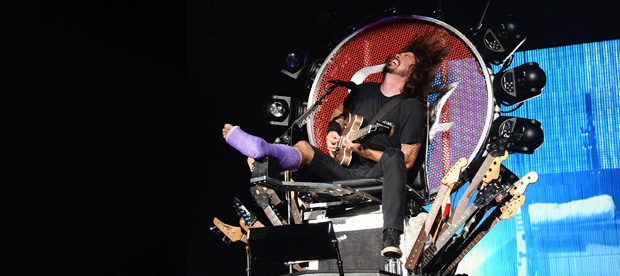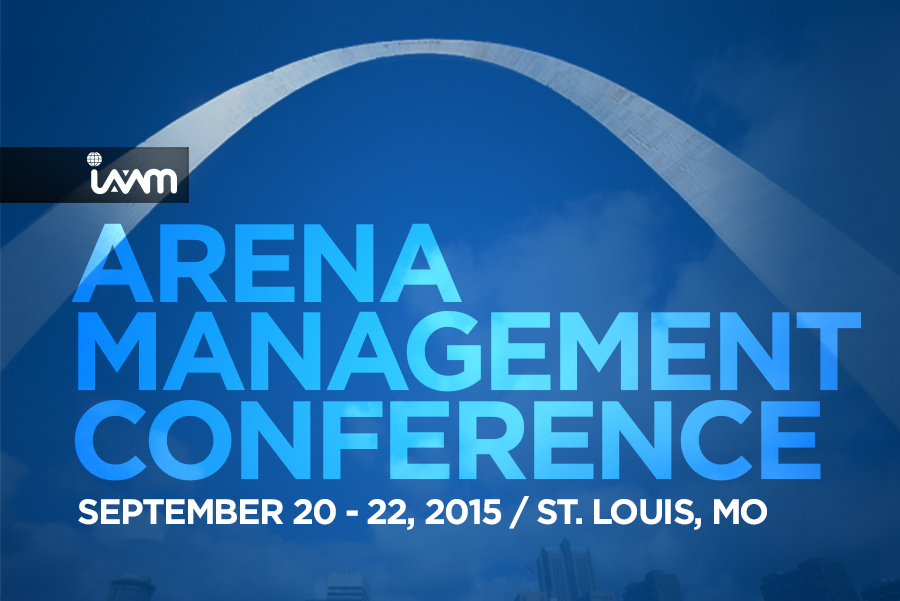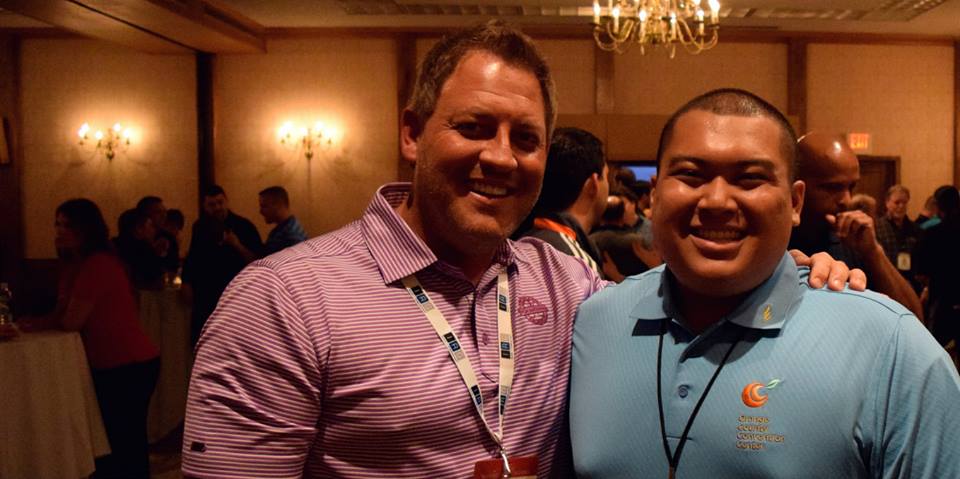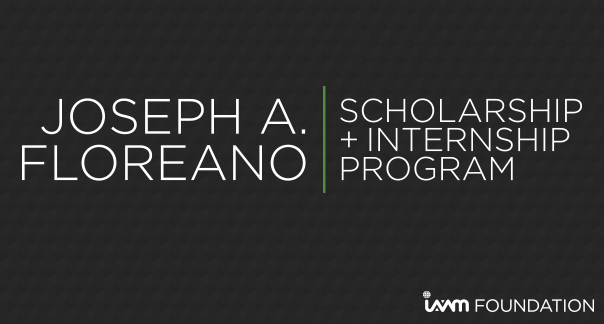iBeacons Will Change the Way Visually Impaired Guests Navigate Your Venue
Twenty-four students are spending three weeks at Penn State practicing the full college experience, including classes, meals, and navigating a large university campus. The camp, organized by the Summer Academy for Students Who Are Blind or Visually Impaired, uses the Blind Square app, iBeacons, and a smartphone to provide custom guidance on everything from crossing streets to getting from the salad bar to the cashier in the dining hall.
The guidance provided is highly customized, and, as Frank Ready reports in the Centre Daily Times, can include significant details such as the sequence of beverages available at self-serve drink stations.
As venues continue to integrate location-based capabilities into the tech experience offered to guests, it is inspiring to see new applications emerging that continue to expand the ability to deliver a great visitor experience.
(Image: Jonathan Nalder via Wikipedia CC)
Steve Jones on Customer Service Lessons From Dave Grohl
Steve Jones is one of this year’s keynote speakers at the upcoming Arena Management Conference (AMC), Sept. 20-22, in St. Louis, Missouri. Jones is a 30-year music industry veteran, one of the world’s leading radio programmers, and author of two marketing books. He has worked alongside some of the biggest names in music, and at AMC he will show you how music stars like AC/DC, U2, Madonna, Jimmy Buffett, Kiss, Fleetwood Mac, and Taylor Swift have created powerful brands, built legions of loyal followers, thrived in changing times, and turned casual customers into raving fans.
One example of an act offering great customer service is the Foo Fighters, whose lead singer, Dave Grohl, broke his leg during a concert in Sweden in June. But that didn’t stop Grohl and the band from continuing the show.
“An hour later, Dave Grohl was wheeled onto the stage in a wheelchair with his leg in a cast, and he picked up his guitar and performed the Queen/Bowie classic ‘Under Pressure’ as a duet with [Taylor] Hawkins behind the drums,” Jones wrote on his blog. “The fans who were in Gothenburg, Sweden, that night saw a performance they will never forget. Not a single fan, I guarantee you, went home unhappy.”
Jones goes on to show how we can all learn lessons in customer service from Grohl. For example, the customer matters most.
“Your personal pain and suffering don’t matter to them,” Jones wrote. “They paid for an experience, and they deserve to get that experience and then some.”
Check out Jones’ post, “Four Things Dave Grohl Can Teach You About Customer Service” to learn more lessons. And register now for AMC, where Jones will help you understand how to “brand like a rock star” and keep customers and fans coming back for years.
(Top Image: Reddit)
Los Angeles Convention Center Upgrades Wi-Fi Network
AEG Facilities’ Los Angeles Convention Center (LACC) and its telecommunications provider, Smart City, recently installed major upgrades to the venue’s existing Wi-Fi network. The upgrades include increased Wi-Fi coverage, a stronger Wi-Fi signal, and expanded complimentary Wi-Fi availability.
“This project is a critical component of our partnership with the facility and we look forward to delivering a superior service to clients and guests,” said Henry De La Rosa, general manager for Smart City at the Los Angeles Convention Center, in a statement. “We upgraded the existing fiber network, including adding 40,000 feet (or 7 miles) of fiber as well as 76,000 feet of copper (or 14 miles). Also, new Cisco wireless access points have been installed, which results in increased Wi-Fi coverage throughout the building.”
The upgraded network provides the LACC with a robust fiber backbone capable of seamlessly supporting large-scale technology shows. Additionally, Smart City’s partnership with technology vendors such as Cisco will further reinforce the facility’s ability to deliver reliable service to clients and guests.
The facility is very excited about the improvements Smart City has made to the entire Wi-Fi network, which covers complimentary and paid Wi-Fi, said Brad Gessner, AEG Facilities senior vice president and general manager for the Los Angeles Convention Center, in a statement.
“Complimentary Wi-Fi is now available in all public areas in the facility as opposed to only the three food court areas; customers also have the option to upgrade to secure Instant Internet or Exhibitor Internet at a fee,” Gessner said.
The LACC provided the following highlights of the Wi-Fi network upgrade:
- Upgrade to the existing fiber network, including the addition of single mode fiber to every IDF in the building
- New core switch (Nexus 7009)
- New UPS for the core switch
- New 2960 switches in every IDF
- Design establish for 210 New Cisco 3702 wireless access points
- Category 6 cabling project to enable wireless
- 76,000 feet of copper (14 miles)
- 40,000 feet of fiber (7 miles)
(Image: EnerGov)
Defining Venue Management School’s Greatest Values
Being chosen as the inaugural recipient of the Joe Floreano Scholarship for Venue Management School (VMS) was a tremendous honor. As a former VMS intern in 2012, it was a unique experience attending this year as a first-year student. While it was the second time I sat in the Year One classes, it felt like an entirely different experience. The classes were extremely informative and gave us a chance to participate in engaging discussions with our peers within the industry. At the sector and industry topic round tables, it was interesting to hear what issues other venue managers are facing and how they operate. Both programs gave me a chance to reflect on how my venue approaches different scenarios.
Networking was the greatest part of VMS. We were given many different opportunities to meet and interact with fellow venue managers. Whether it was at during lunch, socials, or outside of class, students and instructors formed friendships that are sure to last a lifetime! There is a wide variety of students who attend VMS ranging from different facility types to our allied partners. This ensures that everyone has an opportunity to meet someone from all parts of the industry.
The instructors are a vital part of VMS because of their knowledge and tenure. There is a diverse group of instructors with more than 100 years of experience in the industry and from a variety of venues. Students were able to connect with the instructor that they felt most comfortable with. Many mentor-mentee relationships are formed at VMS, making the program a valuable asset for students.
I am extremely grateful for the opportunity given to me by the IAVM Foundation. I never thought I would attend VMS until the Joe Floreano Scholarship was created. The IAVM Foundation is providing opportunities to those who may not have the resources to attend IAVM’s conferences, schools, or professional development courses. I encourage everyone to take full advantage of these opportunities and apply for the various scholarships they have to offer. I am looking forward to my second year of VMS to reunite with my classmates as well as meet the new students of Year One and the Graduate Institute.
Shout out to Class 1B and our room dads, Jason Rittenberry, CFE, and Todd Hunt, CFE! It was a great first year!
Meet This Year’s VenueConnect Interns
The IAVM Foundation is proud to announce the Joseph A. Floreano Scholarship + Internship Program intern recipients for the 2015 VenueConnect conference, recognizing deserving individuals who demonstrate leadership, character, community involvement, and the potential to be future leaders in the venue management industry.
The Foundation also offers scholarships + internships to a variety of other IAVM conferences and schools, click here to learn more and to apply. Thanks to the support of committed donors, together we are Building Amazing Futures. Click here to learn more about the Foundation’s annual campaign.
 Raymond Caraballo, Sport Management, Baldwin Wallace University
Raymond Caraballo, Sport Management, Baldwin Wallace University
If you could be any superhero, who would you be and why? If I could be any superhero, I would be Batman. Growing up as a child, Batman was my favorite superhero, because he meant more than just himself. He had a passion for saving his beloved city of Gotham and stopped at nothing to ensure the safety of the citizens. I can relate to Batman in the sense that I work hard each and every day to represent my family and the great city of Cleveland, Ohio. Any time I do an assignment for my job, I always think about how it reflects on my boss and the company. While I always work hard on every task, I constantly remind myself that what I do is for the betterment of the event and others around me. I always work hard, like Batman, to ensure that a positive result is reached each and every time.
What is your ultimate dream job in the industry? My ultimate goal as a professional is to maintain a vice president role in a facility operations department. Specifically, I would like to maintain that role with an NBA venue. Learning from someone like Antony Bonavita, CFE, with the Cleveland Cavaliers has inspired me to reach that goal, because he instills every characteristic I aspire to be when I am older. Also, being in a vice president role would mean a lot because with that role, I can help produce a positive experience to not only the workers around me, but also to the fans at the venue/arena.
What is your favorite quote? “Any time you have an opportunity to make a difference in this world and you don’t, then you are wasting your time on Earth.” -Roberto Clemente
What #hashtag would best describe you? #Tenacity
 Mikal Daskivich; Recreation, Park, and Tourism Management; Penn State University
Mikal Daskivich; Recreation, Park, and Tourism Management; Penn State University
Favorite team? The Pittsburgh Penguins.
Favorite sports or entertainment memory? My favorite entertainment memory was working six Garth Brooks shows at the Bryce Jordan Center over a two-weekend span while also running Movin’ On, Penn State’s annual spring music festival, at the same time.
If you could be any animal, what would you be and why? I would love to be a Tiger, because they’re such big, beautiful, and majestic creatures while also being extremely powerful. At the same time, they’re just a super-sized version of your pet cats.
What is your ultimate dream job in the industry? My ultimate dream job in the industry is to be an event and entertainment manager at a prestigious venue, such as Madison Square Garden, Barclays Center, or Staples Center.
What is your favorite quote? “Believe deep down in your heart that you’re destined to do great things.” – Joe Paterno
 Aaron Dimatulac, Entertainment Management, Missouri State University
Aaron Dimatulac, Entertainment Management, Missouri State University
If you could be any animal, what would you be and why? I haven’t thought of animal I’d love to be, but for my current job’s last Christmas party, we were all given “Spirit Animal” awards. I was awarded the Blue-footed Booby, for rarity, majesty, and secrecy.
What is your ultimate dream job in the industry? I have a few dream jobs and those are being the general manager of an arena, stadium, or amphitheater, maybe being the president of a record label, or being a guitar/backline technician for a full-time touring, major-label band.
What is your favorite quote? “Failure to plan is planning to fail.”
Do you have previous experience working with IAVM? What did you enjoy most? I was the intern for IAVM’s 2015 Academy for Venue Safety and Security (AVSS) in Dallas, Texas. It was one of the best experiences I’ve ever had and I enjoyed the networking opportunities that came with the events. I started a handful of relationships at AVSS and cannot wait to network with many more industry professionals at VenueConnect.
@Twitter handle? @aaronkinskywlkr
 Anthony Espinoza; Sports, Event, and Entertainment Management; Johnson & Wales University
Anthony Espinoza; Sports, Event, and Entertainment Management; Johnson & Wales University
Favorite musician or band? Of Monsters and Men.
Favorite sports or entertainment memory? Going to the first World Series game in Colorado. It wasn’t an exciting game, but just being there with a sold-out crowd during a World Series game was an amazing feeling.
What is your ultimate dream job in the industry? My dream job in the industry would to be a production manager for a large scale music festival. The logistics of large scale festivals fascinate me, while the building of different stages and areas for activities with the flow of thousands of people would be challenging.
What is your favorite quote? “You miss 100 percent of the shots you don’t take” – Wayne Gretzky. This quote forces me to take chances, while making me realize that the chances I don’t take will never change me for the better. The shots I take and miss will only make me stronger and force me to try harder so I can make the next shot when given the chance.
Favorite childhood snack? Handi-Snacks cheese and crackers.
 Brandon Kress, Business Management, University of Montana
Brandon Kress, Business Management, University of Montana
Favorite team? The Philadelphia Eagles.
If you could be any animal, what would you be and why? A cheetah so I can run fast for once in my life.
If you could be any superhero, who would you be and why? Ironman so I could be a billionaire, playboy, philanthropist, and still fly around in a cool iron suite and fight crime.
Do you have previous experience working with IAVM? What did you enjoy most? Yes, I volunteered at VenueConnect last year. I enjoyed the networking opportunities and getting to know the other volunteers and interns who will be the next leaders in the industry.
What is your ultimate dream job in the industry? To run a sports venue, whether it be an arena or a stadium.
Favorite childhood snack? Scooby-Doo! Fruit Flavored Snacks.
 Stacey Mielke, Sport Management & Business Administration, University of Florida
Stacey Mielke, Sport Management & Business Administration, University of Florida
Favorite musician or band? Brad Paisley.
If you could be any animal, what would you be and why? I would be a leopard, because they are stealth, observant, and quicker than the rest of their competition.
If you could switch places with someone for one day, who would it be and why? I would switch places with Bill Gates to prove that money doesn’t buy happiness.
What is your ultimate dream job in the industry? Ultimately, I want to work in international sports, hosting global events and international camps and use sports to bridge cultural and political gaps around the world.
What is your favorite quote? “True humility is not thinking less of yourself; it is thinking of yourself less.” – C. S. Lewis
Favorite childhood snack? Rice Krispies Treats.
 Ashley Molina, Sport Management, University of Florida
Ashley Molina, Sport Management, University of Florida
Favorite musician or band? Ryan Tedder.
Favorite sports or entertainment memory? I worked all week alongside 300 other student employees building a stage in “The Swamp” for the University of Florida’s homecoming pep rally. I was then able to perform on that same stage homecoming night next to my closest friends for over 500 people. The experience was unreal. The fun didn’t stop there—we then had to strike this massive stage over night to have the stadium ready for the homecoming football game the next day. The transformation was incredible.
If you could switch places with someone for one day, who would it be and why? If I could switch places with anyone it would have to be Misty Copeland. I’d love the opportunity to share the stage one more time as Juliet. To exemplify such grace and beauty that leave people in awe. To have the power to move those in the audience without saying one word. That is why I would want to switch places with Misty Copeland for a day.
What is your ultimate dream job in the industry? Director of operations within an multi-purpose sporting arena. I love the thought of having the power to build a team of competent, reliable people who share my passion for entertainment to work alongside me.
Favorite childhood snack? Dunkaroos.
What #hashtag would best describe you? #treatyoself
@Twitter handle? @swolina
 Miah Moore, Entertainment Management, Missouri State University
Miah Moore, Entertainment Management, Missouri State University
Favorite sports or entertainment memory? Electric Daisy Carnival (EDC) 2012. Held at the Las Vegas Speedway, it’s my favorite festival held in the U.S. I was able to see so many of my favorite composers and DJs. Seeing over 150k+ people in one venue all for the same purpose is amazing to me. You could feel the music before you walked into the track, and the environment they create is beyond imagination.
If you could switch places with someone for one day, who would it be and why? Pasquale Rotella. He is the creator and CEO of Insomniac Events, which is the producer of EDC and various other EDM festivals around the world. I’d want to see what his daily life is like and find out what he does to continue his success.
What is your ultimate dream job in the industry? My ultimate dream job is to be in the festival business working with large scale events throughout the world. Talent buying, site ops, and marketing are all key interests. My passion for music and creating experiences is what drives me to do what I do every day.
Do you have previous experience working with IAVM? What did you enjoy most? Yes, I was an intern at Venue Management School in June 2015. I had the greatest experience with my time at this school because of the people who were present the entire week. The board of regents and students were very welcoming of all the interns and inspired me to keep working for whatever I wish to obtain with my future in entertainment.
@Twitter handle? @miahluzion
What #hashtag would best describe you? #AdventureTime
 Jahmar Plummer, Hospitality and Event Management, Monroe Community College
Jahmar Plummer, Hospitality and Event Management, Monroe Community College
Favorite Team? The Miami Heat.
What person in the venue management industry has inspired you most and why? Without a doubt it was and is Joseph A. Floreano. Joe selected me out of hundreds of part-time employees as an individual he saw potential in, even when I didn’t necessarily see that in myself. His support and guidance gave me the confidence to step up and meet this wonderful opportunity. Joe passed away this past September, but he continues to inspire and motivate me to continue on the path as not only a manager, but also as someone who can respect and be respected by others. He was a person of such wonderful wit, humor, and knowledge, and I have been so fortunate to benefit from his kindness and generosity.
Do you have previous experience working with IAVM? What did you enjoy most? I was able to be a student volunteer at last summer’s VenueConnect in Portland, Oregon, as well as a student intern at Venue Management School this year. I enjoyed the opportunities to network with so many wonderful people, including students, members, allied members, and exhibitors. The professional development programs were outstanding, and I felt that I learned so much in such a short time.
Favorite quote? “Don’t forget to smile!”
 Irina Tuluca, Entertainment Management, Missouri State University
Irina Tuluca, Entertainment Management, Missouri State University
Favorite musician or band? Ed Sheeran.
Your favorite sports or entertainment memory? One time I woke at up 6 a.m. to watch Eminem perform at Lollapalooza at 9 p.m. that night. I got front row and spent the whole day not eating, drinking water, or using the restroom since 9 a.m. to keep my spot. Well worth it during the concert!
If you could switch places with someone for one day, who would it be and why? Teddy Roosevelt. Not only was he the youngest president, but he finished giving his speech with a bullet in his chest—that’s a guy worth learning a thing or two from.
What is your ultimate dream job in the industry? I would love to be an event planner for huge live events like an awards show or festivals that would involve a lot of work with venue managers and professionals in the entertainment industry. I love working with people, and to do it for a career would make working so much fun.
What is your favorite quote? “Sometimes all you need is 20 seconds of insane courage, and something great will come of it.”
@Twitter handle? @irinatuluca
Do you want to receive a Front Row News weekly digest?
Categories
- Allied (856)
- Architecture (147)
- Arenas (744)
- Career (890)
- Convention Centers (889)
- Education (608)
- Events (1,528)
- Food & Beverage (193)
- Foundation (113)
- Guest Experience (1,482)
- Industry News (2,253)
- Leadership (1,872)
- Marketing (150)
- Membership (1,985)
- Music (212)
- Performing Arts Centers (453)
- Professional Development (398)
- Research (127)
- Safety & Security (425)
- Sports (763)
- Stadiums (607)
- Student (159)
- Technology (515)
- Ticketing (92)
- Touring (82)
- Trends (357)
- Uncategorized (771)
- Universities (216)
- Video (25)
- Young Professional (198)
Twitter Feed
- Twitter feed loading
Recent Posts
- GEODIS Park Selects Allied Universal As Its Preferred Event Services Provider
- Venuworks Appoints Marc Solis as Executive Director of the Fresno Convention and Entertainment Center
- Los Angeles Convention Center Diverts 8,000 Pounds of Wood Waste to Local Foundation Supporting Fire Victims
- Fort Worth Unveils Plans for Phase 2 of Convention Center Transformation
- San Diego Convention Center CEO Announces Retirement After a Decade of Leadership
Categories
- Allied
- Architecture
- Arenas
- Career
- Convention Centers
- Education
- Events
- Food & Beverage
- Foundation
- Guest Experience
- Industry News
- Leadership
- Marketing
- Membership
- Music
- Performing Arts Centers
- Professional Development
- Research
- Safety & Security
- Sports
- Stadiums
- Student
- Technology
- Ticketing
- Touring
- Trends
- Uncategorized
- Universities
- Video
- Young Professional
Archives
- February 2026
- January 2026
- December 2025
- November 2025
- October 2025
- September 2025
- August 2025
- July 2025
- June 2025
- May 2025
- April 2025
- March 2025
- February 2025
- January 2025
- December 2024
- November 2024
- October 2024
- September 2024
- August 2024
- July 2024
- June 2024
- May 2024
- April 2024
- March 2024
- February 2024
- January 2024
- December 2023
- November 2023
- October 2023
- September 2023
- August 2023
- July 2023
- June 2023
- May 2023
- April 2023
- March 2023
- February 2023
- January 2023
- December 2022
- November 2022
- October 2022
- September 2022
- August 2022
- July 2022
- June 2022
- May 2022
- April 2022
- March 2022
- February 2022
- January 2022
- December 2021
- November 2021
- October 2021
- September 2021
- August 2021
- July 2021
- June 2021
- May 2021
- April 2021
- March 2021
- February 2021
- January 2021
- December 2020
- November 2020
- October 2020
- September 2020
- August 2020
- July 2020
- June 2020
- May 2020
- April 2020
- March 2020
- February 2020
- January 2020
- December 2019
- November 2019
- October 2019
- September 2019
- August 2019
- July 2019
- June 2019
- May 2019
- April 2019
- March 2019
- February 2019
- January 2019
- December 2018
- November 2018
- October 2018
- September 2018
- August 2018
- July 2018
- June 2018
- May 2018
- April 2018
- March 2018
- February 2018
- January 2018
- December 2017
- November 2017
- October 2017
- September 2017
- August 2017
- July 2017
- June 2017
- May 2017
- April 2017
- March 2017
- February 2017
- January 2017
- December 2016
- November 2016
- October 2016
- September 2016
- August 2016
- July 2016
- June 2016
- May 2016
- April 2016
- March 2016
- February 2016
- January 2016
- December 2015
- November 2015
- October 2015
- September 2015
- August 2015
- July 2015
- June 2015
- May 2015
- April 2015
- March 2015
- February 2015
- January 2015
- December 2014
- November 2014
- October 2014
- September 2014
- August 2014
- July 2014
- June 2014
- May 2014
- April 2014
- March 2014
- February 2014
- January 2014
- December 2013
- November 2013
- October 2013
- September 2013
- August 2013
- July 2013
- June 2013
- May 2013
- April 2013
- March 2013
- February 2013
- January 2013
- May 2012
- March 2012
- December 2011
- November 2011
- October 2011
Recent Comments
- Frank Bradshaw, Ph.D., CVE on John Meyer, CVE, a Tireless Advocate of Certification for Venue Professionals, Has Died
- Neil Sulkes on Hilary Hartung, Friend to Many in Venue Marketing, Has Left Us
- Jason Parker, CVE on The Devastation of Hurricane Helene and How We Can Support One Another
- Larry Perkins on Touhey Testifies Against Speculative Ticketing Before Congressional Subcommittee
- Peter Secord on Major Players for Planned Elkhart Amphitheater Were in the Mix at VenueConnect





